

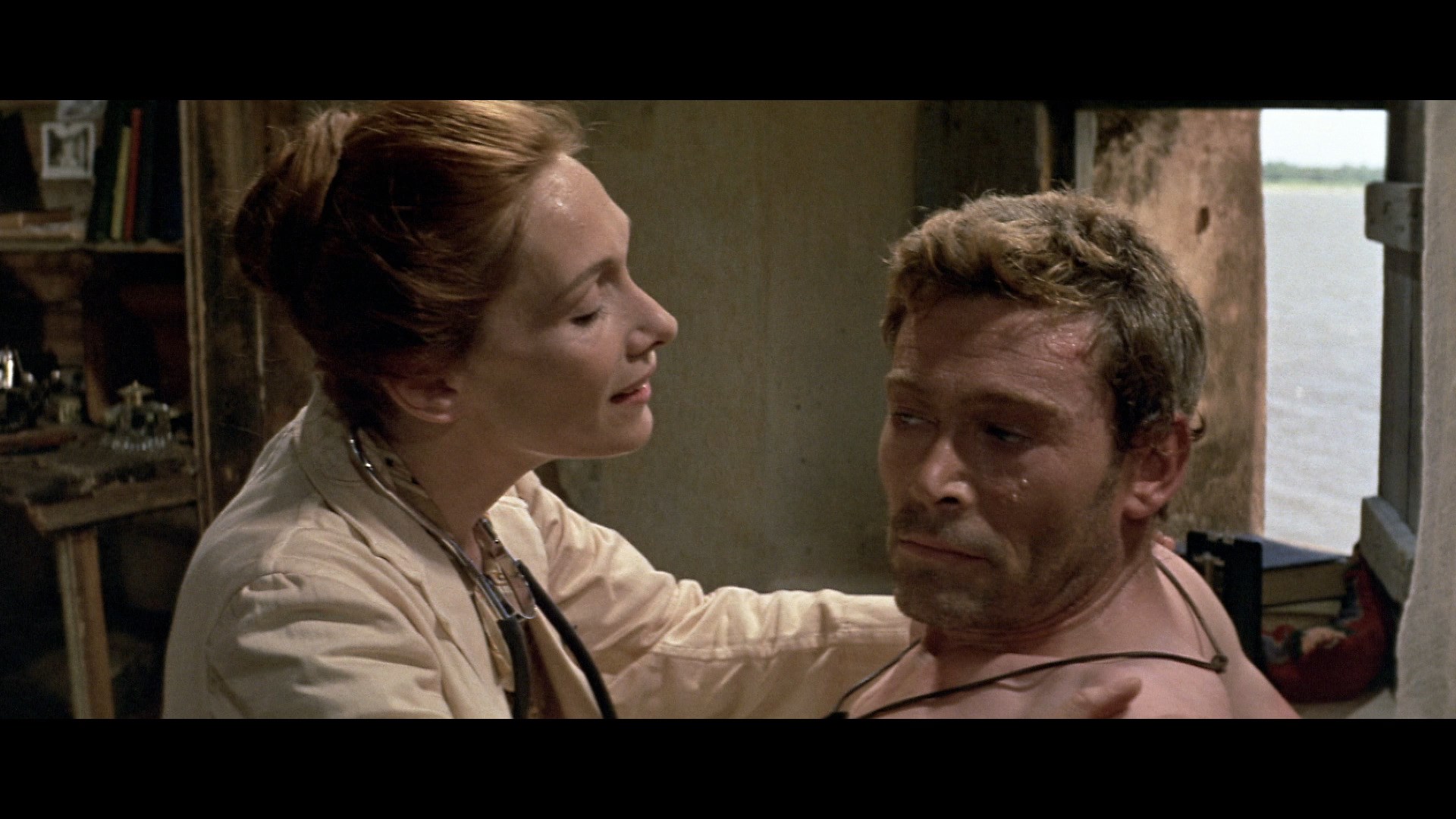 nightmarish production that destroyed the main
nightmarish production that destroyed the main 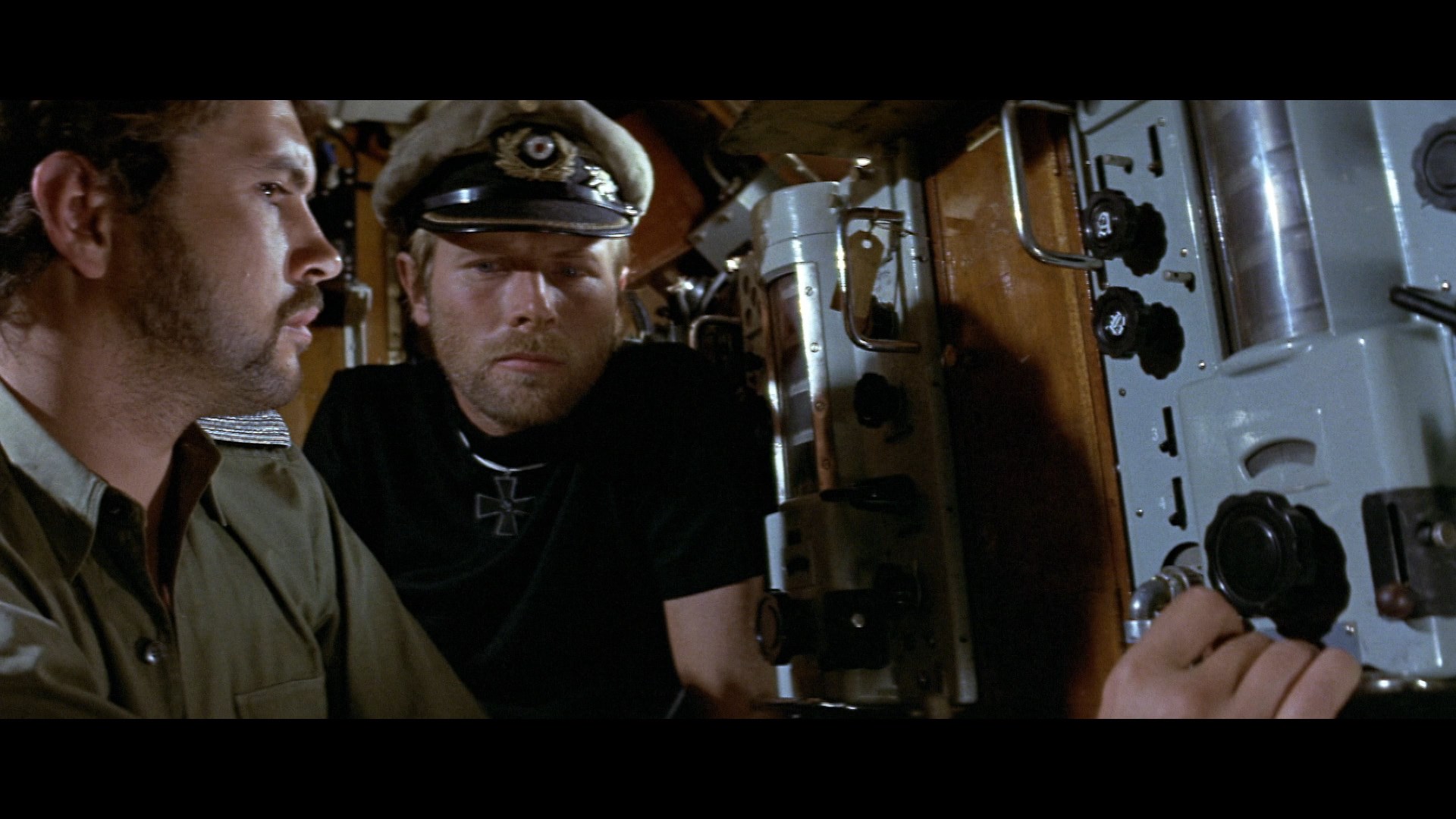 professional relationship behind it, Murphy's War is a wartime adventure that mostly got lost in the shuffle after high-profile films like Patton, Kelly's Heroes, and Tora! Tora! Tora! Here we have the old chestnut about a plucky average joe waging a personal battle against the enemy, here buoyed by a very enthusiastic Peter O'Toole with the most exaggerated Irish accent of his career. The film's less than enthusiastic reception seems perplexing given amount of talent involved including ace cinematographer Douglas Slocombe (showing off his impeccable eye for scope lensing as usual), Oscar-winning screenwriter Stirling Silliphant (In the Heat of the Night), and director Peter Yates, who had recently hit the big time with Bullitt and John and Mary. This was his biggest project with producer Michael Deeley, with whom he'd worked earlier on Robbery and formed a film company called, logically enough, Michael Deeley-Peter Yates Films. Unfortunately the arduous experience split them up, with Deeley (recently off of the British classic The Italian Job) moving on to more challenging tasks like Convoy and The Man Who Fell to Earth before scoring again with The Deer Hunter and Blade Runner. With all these people involved, Murphy's War should be seen as far more than a footnote and more like a Werner Herzog-worthy attempt to depict the madness of war that also feels like an act of insanity itself.
professional relationship behind it, Murphy's War is a wartime adventure that mostly got lost in the shuffle after high-profile films like Patton, Kelly's Heroes, and Tora! Tora! Tora! Here we have the old chestnut about a plucky average joe waging a personal battle against the enemy, here buoyed by a very enthusiastic Peter O'Toole with the most exaggerated Irish accent of his career. The film's less than enthusiastic reception seems perplexing given amount of talent involved including ace cinematographer Douglas Slocombe (showing off his impeccable eye for scope lensing as usual), Oscar-winning screenwriter Stirling Silliphant (In the Heat of the Night), and director Peter Yates, who had recently hit the big time with Bullitt and John and Mary. This was his biggest project with producer Michael Deeley, with whom he'd worked earlier on Robbery and formed a film company called, logically enough, Michael Deeley-Peter Yates Films. Unfortunately the arduous experience split them up, with Deeley (recently off of the British classic The Italian Job) moving on to more challenging tasks like Convoy and The Man Who Fell to Earth before scoring again with The Deer Hunter and Blade Runner. With all these people involved, Murphy's War should be seen as far more than a footnote and more like a Werner Herzog-worthy attempt to depict the madness of war that also feels like an act of insanity itself.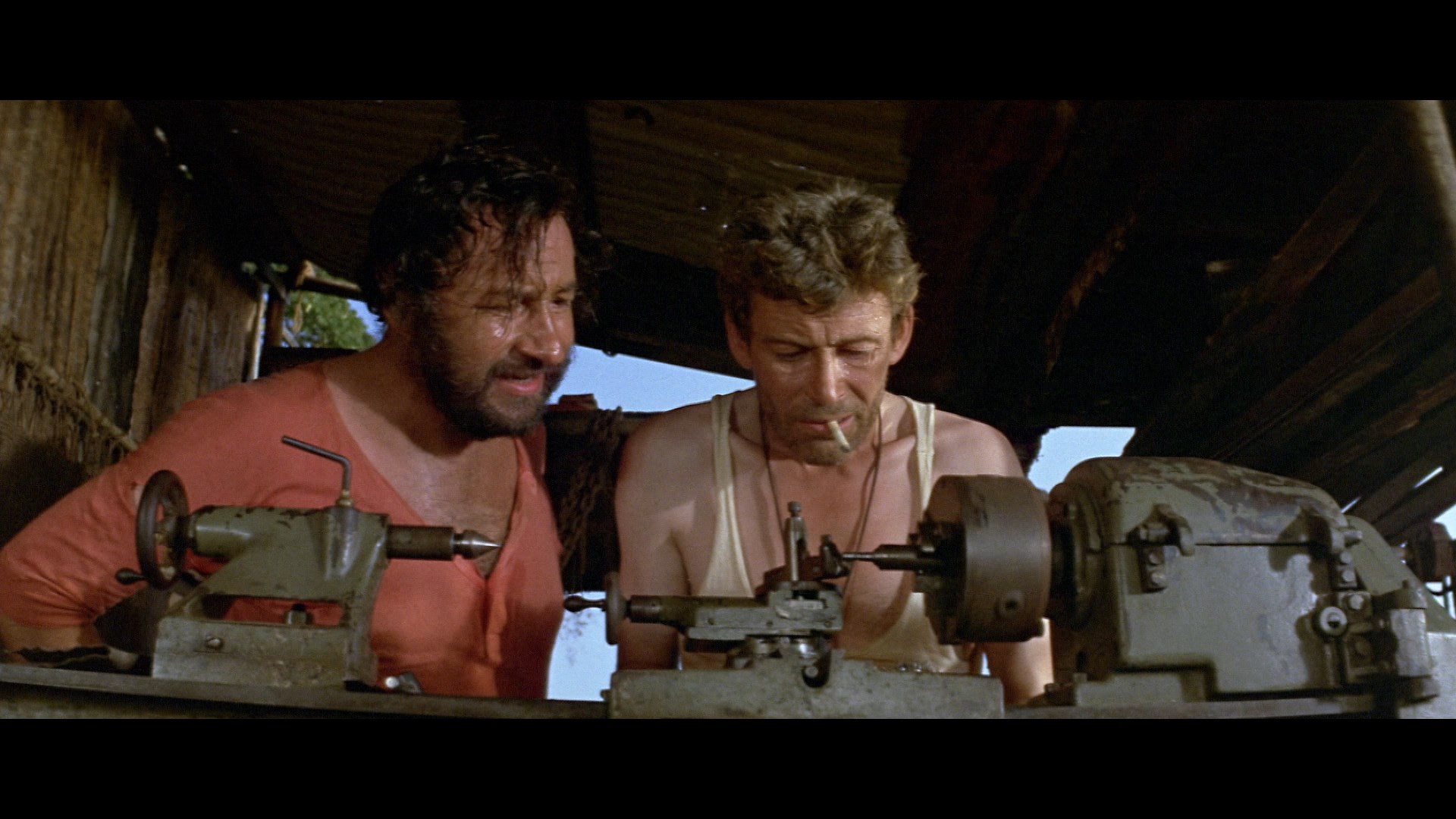 only blasts the vessel but finishes off the remaining men with gunfire. Murphy
only blasts the vessel but finishes off the remaining men with gunfire. Murphy 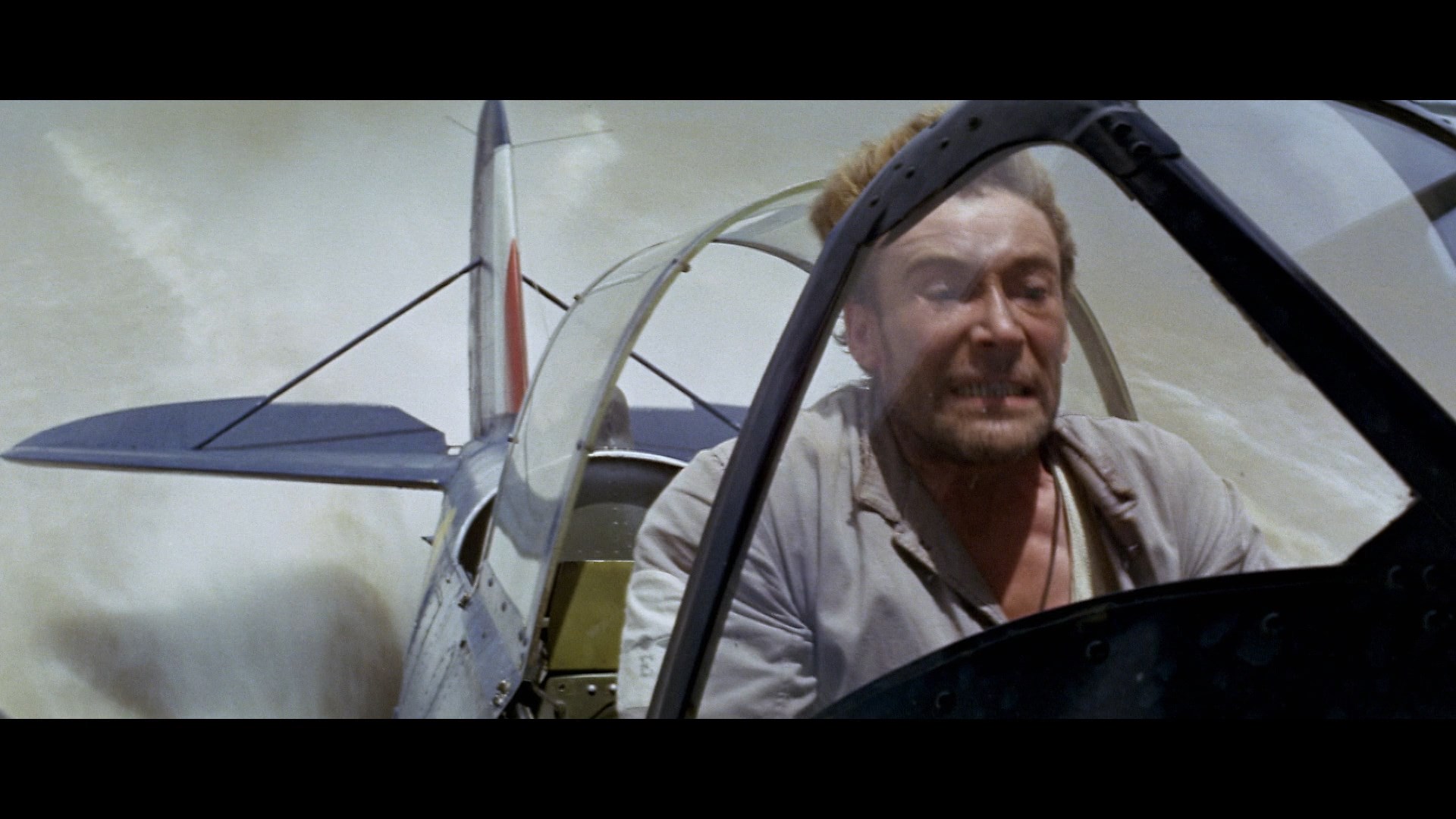 barely survives and ends up in the care of pacifist missionary Dr. Hayden (Phillips, O'Toole's wife at the time). Also in her care is a wounded floatplane captain who gets slaughtered by the Nazi officers upon arrival, led by ruthless sub captain Commander Lauchs (Janson, Captain Kronos, Vampire Hunter himself). Aided by boisterous Frenchman Brezon (Noiret) and Hayden, Murphy decides to stick around and use any means at his disposal to strike back at the U-boat which he's learned is stationed very close by as the war is quickly coming to a close. How far Murphy is willing to go to finish his mission, of course, remains to be seen.
barely survives and ends up in the care of pacifist missionary Dr. Hayden (Phillips, O'Toole's wife at the time). Also in her care is a wounded floatplane captain who gets slaughtered by the Nazi officers upon arrival, led by ruthless sub captain Commander Lauchs (Janson, Captain Kronos, Vampire Hunter himself). Aided by boisterous Frenchman Brezon (Noiret) and Hayden, Murphy decides to stick around and use any means at his disposal to strike back at the U-boat which he's learned is stationed very close by as the war is quickly coming to a close. How far Murphy is willing to go to finish his mission, of course, remains to be seen.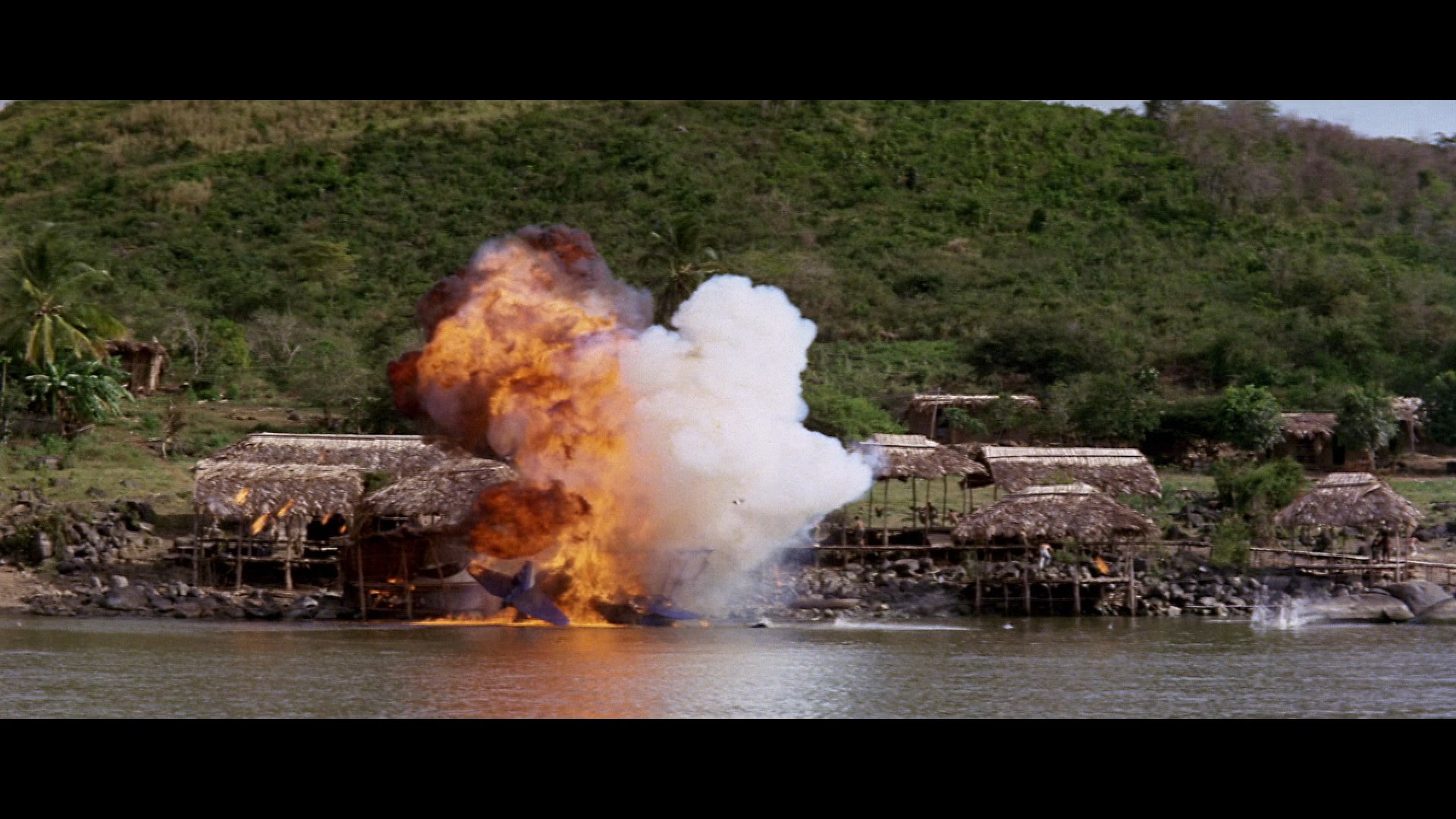 source music instead of a traditional music score, though some sparing compositions were provided by John Barry and
source music instead of a traditional music score, though some sparing compositions were provided by John Barry and 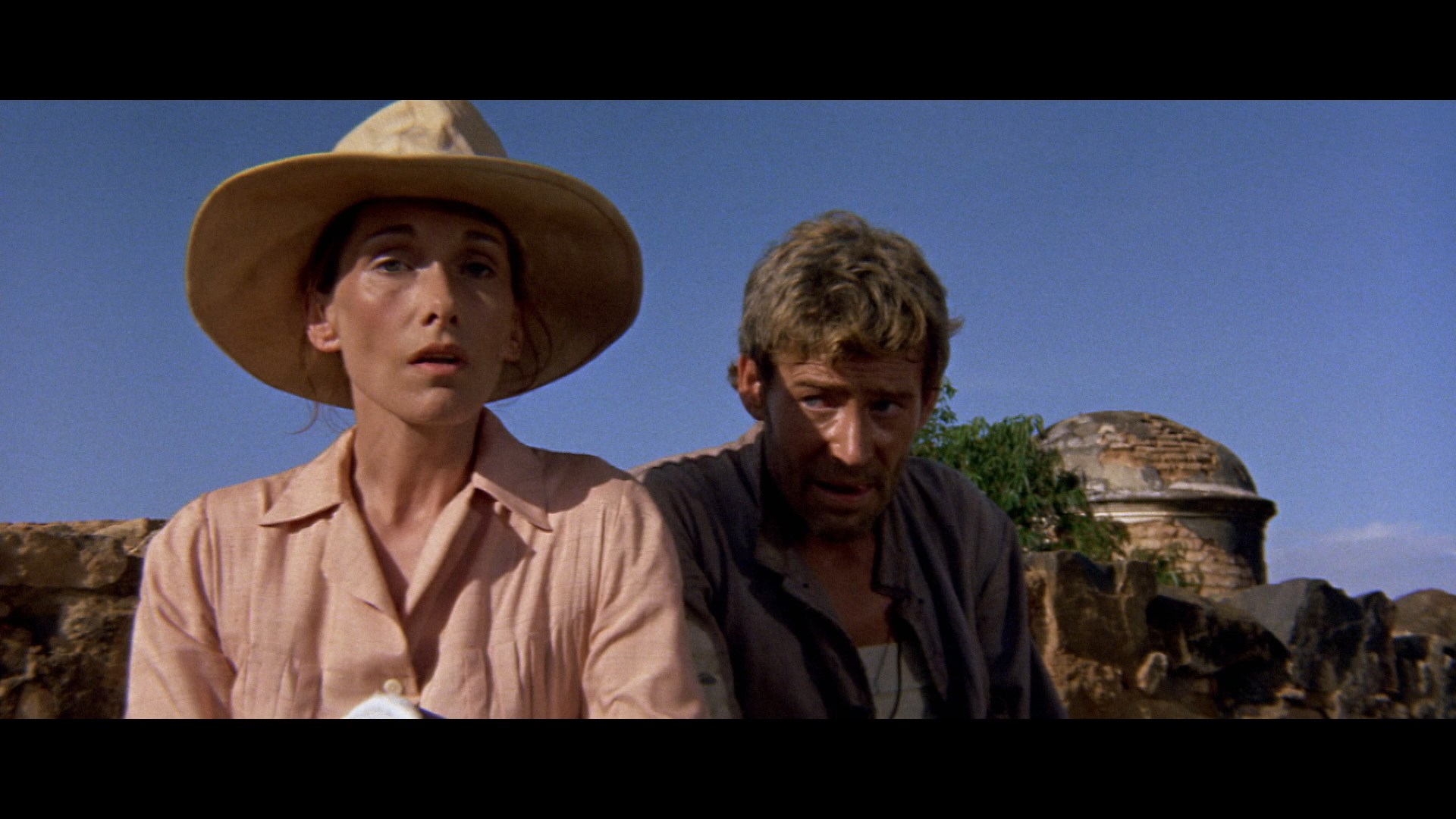 Ken Thorne.
Ken Thorne.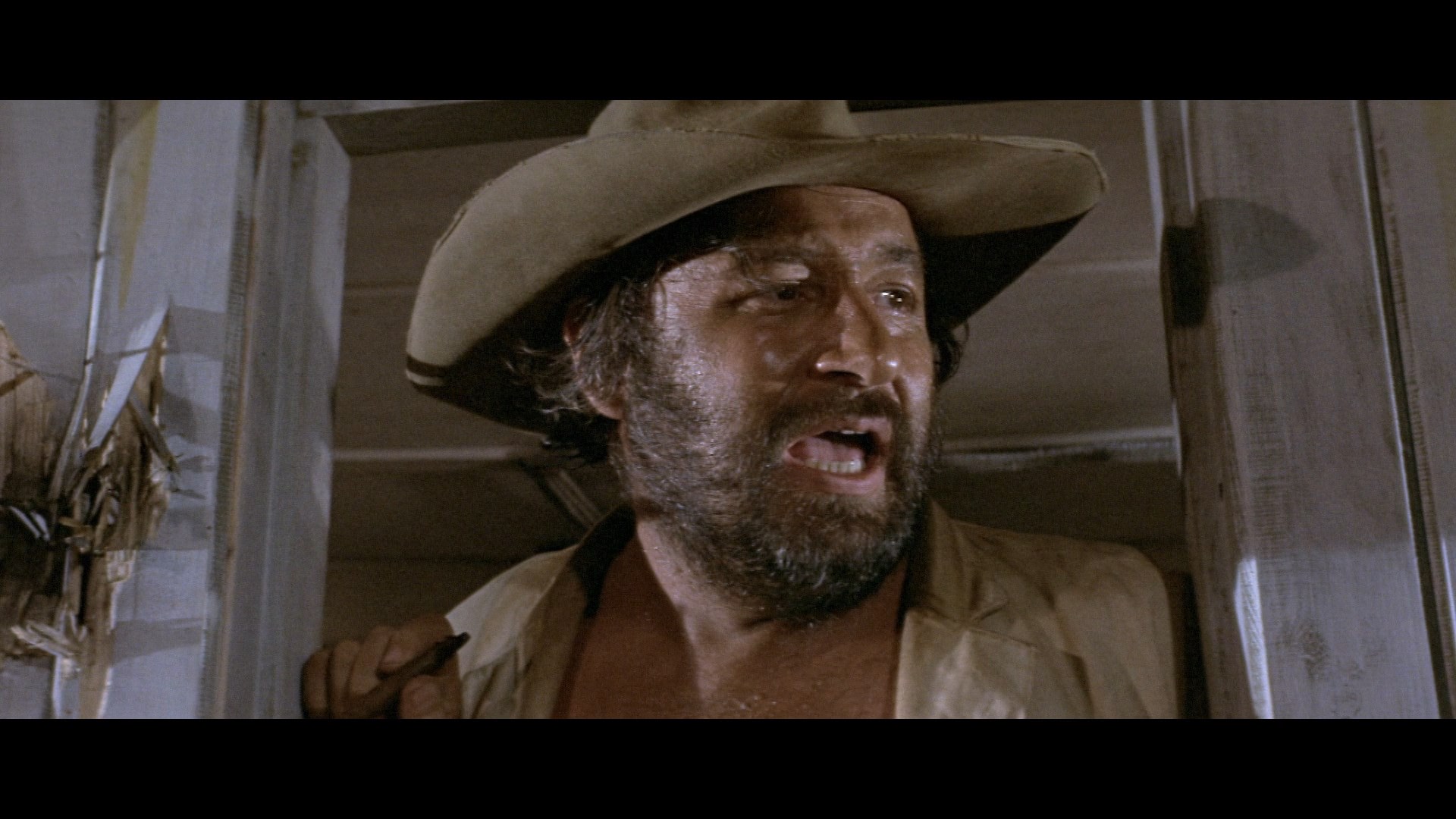 puller Robin Vidgeon (who later become a director of photography for Hellraiser and The Fly II) sharing his memories of
puller Robin Vidgeon (who later become a director of photography for Hellraiser and The Fly II) sharing his memories of 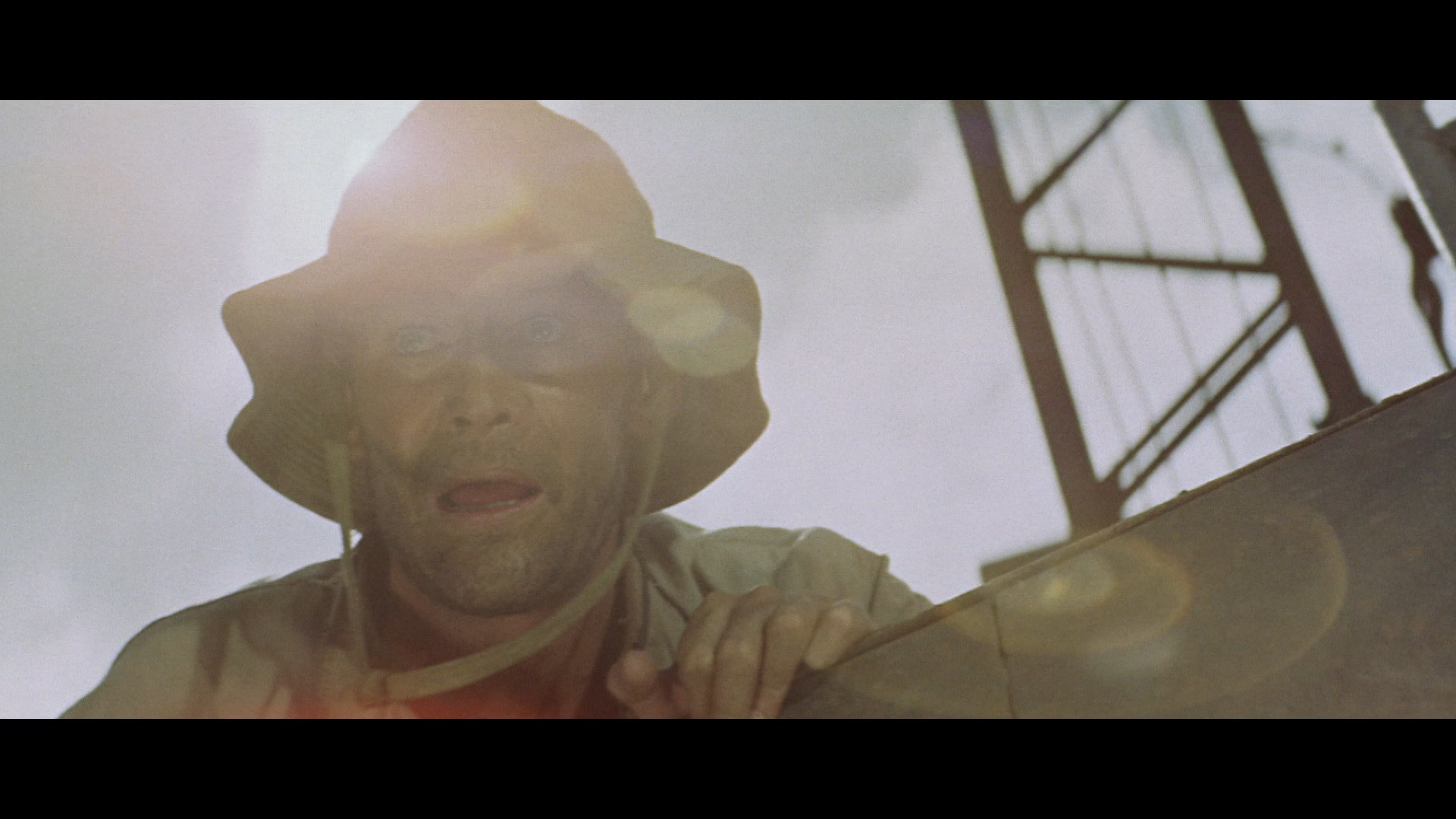 working with Slocombe and camera operator Chic Waterson including the trick of getting effective close-ups of women, using direct light, and watching rehearsals to find the right lenses. "One Man Army" (17m17s) features an appraisal of the film by film historian Sheldon Hall contextualizing the film as an ironic tale about the absurdity of war and a key title during a turbulent time in the film industry, while "Behind the Camera" (12m46s) is a 1999 mini-documentary about Slocombe with the man himself and contributions by Ken Russell, Richard Attenborough, Frank Marshall, and Alan Parker commenting on his achievements from early Ealing comedies to major Steven Spielberg blockbusters. Finally the disc wraps up with the original Super 8 condensed version (20m15s) in glorious pan and scan, the alternate U.S. end credits (1m19s), a textless theatrical trailer, and a massive 117-image gallery of production stills and promotional material. The robust insert booklet includes a new essay by Julian Wheeler, "No More Heroes" (exploring how the film's blending of narrative trends caused critical annoyance at the time but makes it fascinating now), the original press kit coverage of the film's making, a "Peter O'Toole on Location" story from Photoplay Film Monthly, and sample critical reactions.
working with Slocombe and camera operator Chic Waterson including the trick of getting effective close-ups of women, using direct light, and watching rehearsals to find the right lenses. "One Man Army" (17m17s) features an appraisal of the film by film historian Sheldon Hall contextualizing the film as an ironic tale about the absurdity of war and a key title during a turbulent time in the film industry, while "Behind the Camera" (12m46s) is a 1999 mini-documentary about Slocombe with the man himself and contributions by Ken Russell, Richard Attenborough, Frank Marshall, and Alan Parker commenting on his achievements from early Ealing comedies to major Steven Spielberg blockbusters. Finally the disc wraps up with the original Super 8 condensed version (20m15s) in glorious pan and scan, the alternate U.S. end credits (1m19s), a textless theatrical trailer, and a massive 117-image gallery of production stills and promotional material. The robust insert booklet includes a new essay by Julian Wheeler, "No More Heroes" (exploring how the film's blending of narrative trends caused critical annoyance at the time but makes it fascinating now), the original press kit coverage of the film's making, a "Peter O'Toole on Location" story from Photoplay Film Monthly, and sample critical reactions. ![]()